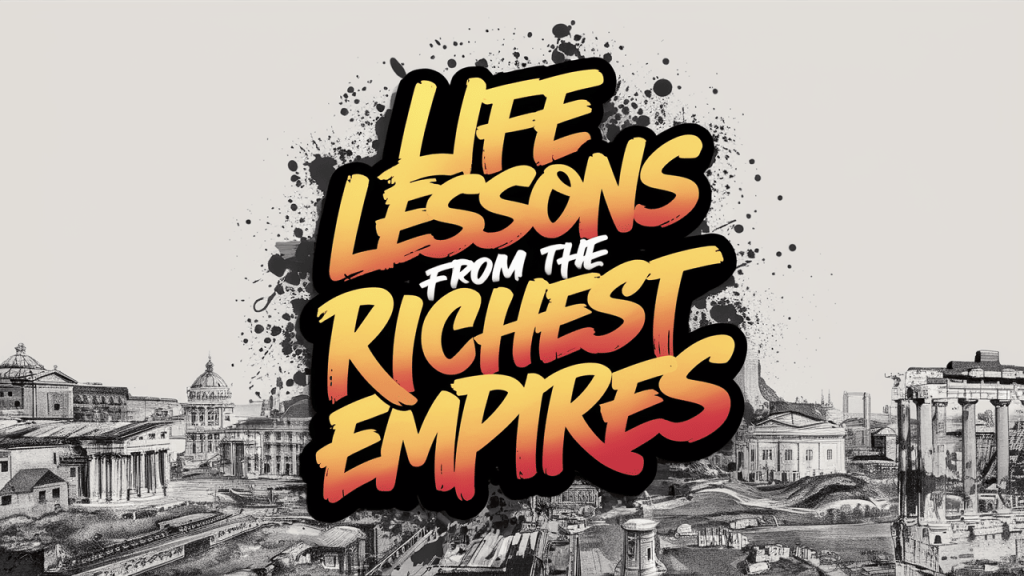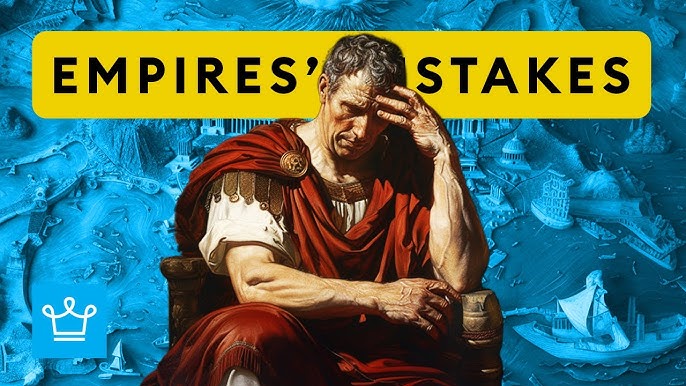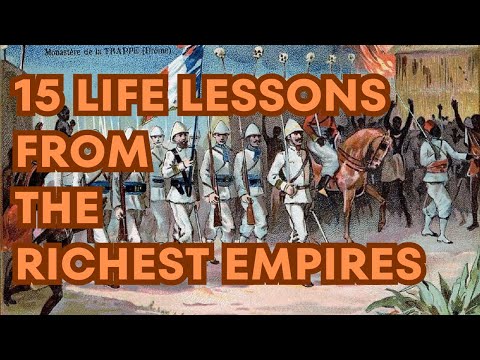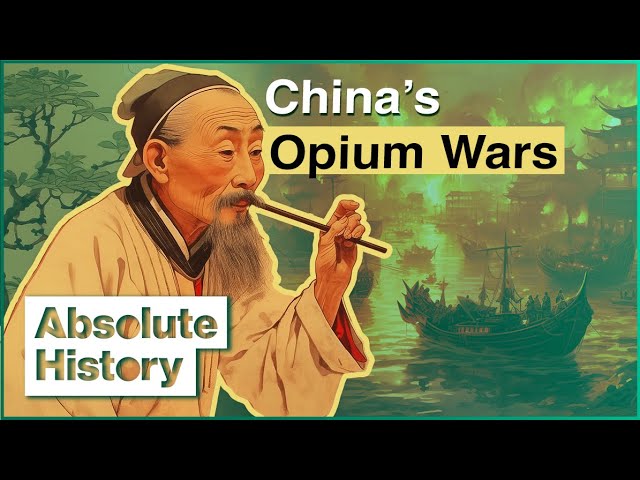15 Life Lessons From the Richest Empires” sheds light on the invaluable lessons we can glean from some of history’s most powerful and enduring empires. By analyzing their intelligence, success, and focus, you’ll discover strategies they used to create demand, navigate financial systems, and foster resilience—principles that remain relevant today.
In this article, you’ll explore how historical giants, like the Mali Empire and the Dutch Empire, mastered resource utilization and financial acumen. You’ll also delve into the merits of strategic planning, effective leadership, and the importance of cultural appreciation, drawing from the experiences of the Roman Empire, the Mughal Empire, and others. This journey into the past offers a wealth of knowledge, proving that the successes of yesterday can inspire your achievements today.
Use Resources to Create Demand
Mali Empire’s Use of Gold
Imagine stumbling upon a treasure trove in your backyard—what would you do with it? The Mali Empire, reigning from the 13th to the 16th centuries, found itself in a similar situation, but on a much grander scale. They had vast gold mines, an abundance of salt, and ivory. Mansa Musa, one of their most famous rulers, ingeniously utilized these resources to establish the Mali Empire as a hub of wealth and economic activity. When Mansa Musa traveled to Mecca, he generously distributed gold, causing inflation in cities he visited and capturing the attention of traders and investors. It wasn’t just about having gold—it was how Mali strategically used it to generate demand and establish an economic stronghold.
Strategic Trade Routes
Connecting the dots on a map doesn’t seem like much until you realize those dots comprise the world’s main trade highways. The Mali Empire cleverly controlled the trans-Saharan trade routes, which were critical in linking different parts of the known world. These routes acted like the lifelines of their economy, enabling the exchange of not just goods but ideas and culture as well. Imagine these trade routes as your modern-day network of skills, knowledge, and connections. By strategically leveraging what you have and where it can take you, you can carve out a niche for yourself where your resources become exceptionally valuable.
Leveraging Natural Resources
Natural resources are not just elements extracted from the earth; they’re opportunities waiting to be maximized. The key to Mali’s success was not merely in possessing gold or salt but in how they leveraged these resources to create something more significant. What resources can you tap into in your life—perhaps your skills, your time, or even your unique experiences? The trick is to find creative ways to position these resources so that they generate interest and demand, much like Mali did with its gold.
Understand and Navigate the Financial System
Dutch Empire’s Amsterdam Stock Exchange
The Dutch Empire during its Golden Age didn’t just coast on their naval prowess—they built the first stock exchange in Amsterdam in 1602. This revolutionary concept allowed for the trading of stocks and bonds, which in turn democratized wealth and investment opportunities. Think of it as opening a new set of doors for financial growth, doors that were previously locked. Much like the Dutch, if you want to comprehend how wealth circulates and how you can be part of that circle, it’s crucial to educate yourself on financial systems, however intimidating they may seem.
Innovations in Banking and Trade
Banking and trade weren’t born overnight; they were nurtured through innovation. The Dutch mastered maritime trade and financial services, making Amsterdam a financial hub. They applied groundbreaking methods to raise capital, supporting ventures and trade expeditions that fueled economic prosperity. Ever heard of venture capital? Crowdfunding? These are the modern-day equivalents of those innovations. Educate yourself on these avenues because they offer different benefits and risks, and staying ignorant could cost you valuable opportunities.
Monetary Policies and Economic Growth
You might think “monetary policies” sound like jargon, but they were pivotal in the Dutch Empire’s economic boom. Through these policies, they managed to keep inflation in check while encouraging investment and trade. In simple terms, it’s about understanding how money works in your pocket and in the broader economy. Smart monetary policies create a stable financial environment, fostering growth and confidence among investors and traders. So, next time you hear about policies and economic shifts, pay attention—they could directly impact your financial future.
This image is property of i.ytimg.com.
Lead with Clear Vision
Visionary Leaders in the Roman Empire
Some people seem to weave through life effortlessly, but those who leave a mark are the ones who balance adaptability with a clear vision. Leaders like Julius Caesar and Augustus didn’t just govern—they envisioned an empire built on law, governance, and culture, and they led Rome to unimaginable heights. A clear vision allows you to see far beyond your current situation and guides you like a North Star as you navigate through life’s challenges.
Genghis Khan’s Strategic Vision
Then there’s Genghis Khan, whose vision united Mongol tribes and stretched his empire across continents. His leadership was unparalleled, combining military ingenuity with a knack for absorbing new technologies and cultures from those he conquered. Consider this: All groundbreaking innovations and changes often stem from a visionary leader who dared to think differently. Perhaps it’s time you define your vision and lead yourself with such clarity and purpose.
Setting Long-term Goals
Long-term goals create a framework within which short-term actions gain meaning and direction. Visionary leaders excel in this, and so can you. Whether it’s a career objective, personal growth, or even a community project, setting clear, actionable long-term goals provides a roadmap. You’re no longer wandering; you’re navigating with intention.
Value Merit and Skills Over Nepotism
Meritocracy in the Mongol Empire
In today’s world, the term “nepo baby” stirs up quite a bit of controversy, and rightly so. The Mongol Empire, however, sidestepped this trap by valuing talent and skill over lineage. Promotions were based on merit and performance, resulting in a highly efficient and successful administration. Translate that to your life: instead of opting for shortcuts or favoritism, recognize and reward hard work and skill—both in yourself and in others.
Tang Dynasty’s Bureaucratic System
The Tang Dynasty in China had an impressive bureaucratic system that operated on a merit-based examination. No connections, no strings attached—your progress depended solely on your abilities and knowledge. Such a system ensures that those in decision-making positions are genuinely capable. If you’re a leader, think about how to incorporate this into your own hiring or evaluation processes.
Promoting Talent and Ability
Hiring someone because they’re well-connected might offer short-term gains, but promoting talent and ability ensures long-term success and fosters a work environment that inspires excellence. When you surround yourself with talented and competent people who’ve earned their place, their drive and vision will only amplify your own ambitions and effectiveness.
This image is property of i.ytimg.com.
Become Resilient and Adaptable
Byzantine Empire’s Longevity
How do you keep a ship sailing smoothly through stormy seas for over a thousand years? The Byzantine Empire did just that through strategic marriages, cunning diplomacy, and evolving military tactics. Resilience isn’t just about weathering the storm; it’s about adapting and evolving to survive and thrive. When faced with challenges, don’t just brace yourself—look for ways to adapt and turn obstacles into stepping stones.
Mongol Empire’s Tactical Flexibility
The Mongol Empire’s success lay in its ability to adapt quickly. Utilizing the technological advancements and tactics of conquered cultures made them a formidable force. In your life, being flexible and open to new ideas can offer unexpected avenues for success. When something doesn’t go as planned, see it as an opportunity to pivot and adapt, rather than a setback.
Learning from Failures
Every empire faced its share of failures, but what set them apart was their ability to learn and bounce back. Failure is a tough but invaluable teacher. Each setback you experience is a lesson in disguise. Analyze what went wrong, adapt your approach, and apply those lessons moving forward. Resilience grows from learning and evolving, not from a stubborn refusal to change.
Appreciate Different Cultures
Mughal Empire’s Cultural Fusion
Cultural diversity isn’t just a buzzword—it’s a catalyst for creativity and innovation. The Mughal Empire in India is a perfect example of this. They blended Persian, Indian, and Islamic influences to produce stunning art, architecture, and governance systems. Embracing cultural diversity can enrich your life and open up new perspectives you may never have considered.
Fostering Innovation through Diversity
Innovation often blossoms at the intersection of diverse ideas and perspectives. By being open to different cultural influences, you can foster an environment ripe for creative solutions and fresh approaches. This doesn’t mean merely acknowledging different cultures; it means genuinely respecting and integrating them into your worldview.
Creative Blending of Traditions
The magic happens when traditions and ideas from various cultures blend seamlessly. The result is something richer, more nuanced, and incredibly innovative. By appreciating and incorporating diverse cultural perspectives, you can create solutions and projects that stand out for their originality and depth.
This image is property of i.ytimg.com.
Keep Up with Technological Advances
Tang Dynasty’s Innovations
Technology can either propel you forward or leave you in the dust. The Tang Dynasty in China set an example by being pioneers in advancements like paper money and gunpowder. They didn’t just keep up with technology; they were leading the charge. In today’s rapidly evolving world, staying updated with technological advances isn’t just beneficial—it’s crucial.
Roman Empire’s Engineering Feats
The Roman Empire’s engineering marvels, from aqueducts to road networks, were ahead of their time and laid the groundwork for modern infrastructure. Their ability to design and implement technological advancements showcased their forward-thinking mindset. Embracing new technologies can be as transformative for you as it was for the Romans.
Embracing New Technologies
It’s easy to become complacent with what you know, but technological advancements will continue whether you keep up or not. Embrace new technologies and leverage them to your advantage. Whether it’s a new software for your business or a cutting-edge tool in your field, staying technologically adept keeps you relevant and competitive.
Build Ideal Infrastructure
Mali Empire’s Cities and Learning Centers
Infrastructure isn’t just about buildings and roads; it’s about creating environments that facilitate growth and learning. The Mali Empire’s cities and learning centers played pivotal roles in their economic and cultural success. By prioritizing infrastructure, whether in your business, home, or community, you lay the groundwork for sustainable growth and development.
Supportive Structural Developments
Supportive infrastructure can be a game-changer. Think of it as the backbone that supports all your endeavors. Whether it’s an efficient office layout or a well-planned community project, the right infrastructure makes everything smoother, more efficient, and more productive. It’s the unsung hero behind every successful venture.
Urban Planning and Public Works
Good urban planning and public works don’t just improve aesthetics—they enhance functionality and quality of life. The Romans excelled in this, with their well-planned cities and public amenities. In your context, meticulous planning and thoughtful development of your workspace, home, or community initiatives can have transformative effects.
This image is property of i.ytimg.com.
Effective Communication Systems
Mongol Empire’s Postal System
A breakdown in communication can lead to chaos, while an efficient system can be the bedrock of success. The Mongols had an outstanding postal system called the Yam, enabling swift and reliable message delivery across their vast empire. Clear and rapid communication is just as crucial in today’s fast-paced world, ensuring everyone stays informed and connected.
British Empire’s Global Communications
The British Empire’s global reach was underpinned by its robust communication systems, from telegraphs to naval dispatches. Efficient communication ensured smooth governance and coordination across continents. In your life or business, prioritizing clear and effective communication methods can prevent misunderstandings and streamline operations.
Ensuring Quick and Clear Information Flow
In any relationship or organization, clear and quick information flow is vital for success. Slow or muddled communication can lead to errors, delays, and frustration. Establishing efficient methods for sharing information keeps everyone on the same page and accelerates progress.
Conclusion
Summary of Key Lessons
From the Mali Empire’s strategic use of gold to the Byzantine Empire’s resilience, historical empires offer a wealth of lessons. Understanding and navigating financial systems, valuing merit, adapting to change, appreciating different cultures, keeping up with technology, building solid infrastructures, and prioritizing communication—these principles have stood the test of time.
Relevance to Modern Life
These age-old strategies are incredibly relevant in today’s world. Whether you’re looking to advance in your career, start a business, or simply enrich your personal life, these lessons provide a solid foundation. Success in the modern world doesn’t require reinventing the wheel; often, it’s about learning from the past and applying those lessons effectively.
Embracing Historical Wisdom
So, next time you’re faced with a challenge or decision, consider drawing on the wisdom of these historic empires. Whether it’s adapting to change, leading with vision, or valuing skill over privilege, these principles can guide you to a more successful and fulfilling life. Embrace their wisdom, and you’ll be better prepared to navigate the complexities of our modern world.
This image is property of i.ytimg.com.












